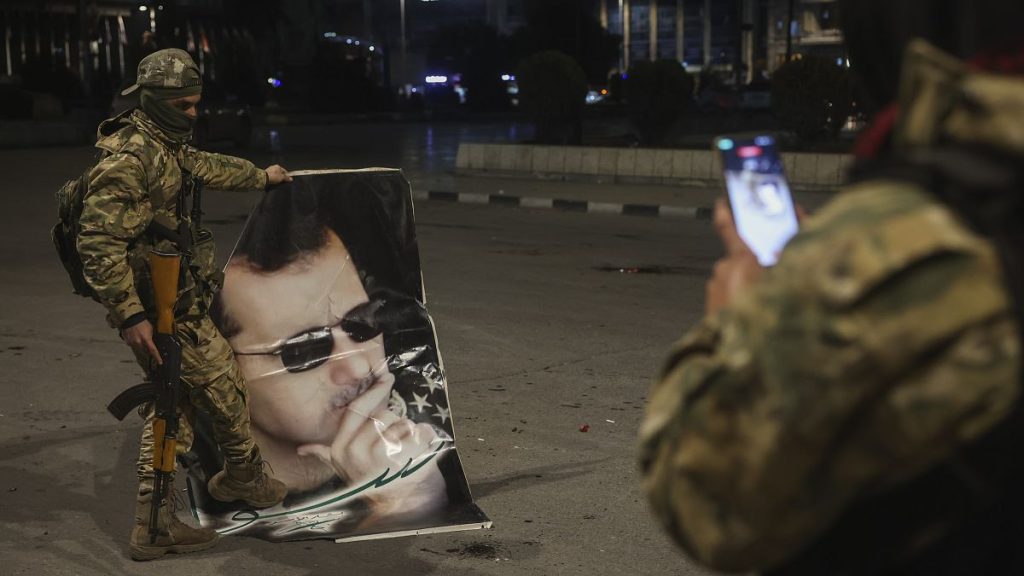The unexpected collapse of Bashar al-Assad’s regime after nearly 14 years of brutal civil war has sent shockwaves across the international community, prompting a mixture of relief, cautious optimism, and concern for the future of Syria and the broader Middle East. World leaders have largely welcomed the end of Assad’s rule, condemning his brutal tactics and the immense suffering inflicted upon the Syrian people. The swift, 12-day offensive led by rebel groups, met with minimal resistance from the Syrian army, highlighted the regime’s weakened state and underscored a potential shift in regional power dynamics. The focus now turns to establishing a stable, inclusive government in Syria and mitigating the risks associated with the power vacuum.
European leaders expressed a shared sentiment of hope for a peaceful transition and a future Syria free from oppression. German Chancellor Olaf Scholz attributed the mass exodus of Syrian refugees to Assad’s actions, while French President Emmanuel Macron labeled the fallen regime “barbaric.” Polish Prime Minister Donald Tusk viewed the event as a demonstration that even the most entrenched regimes can be toppled, and UK Prime Minister Keir Starmer emphasized the need for a political solution to ensure stability. Dutch Prime Minister Dick Schoof expressed relief for the Syrian people, highlighting the importance of a peaceful transition that respects minority rights.
The European Union, acknowledging both the opportunities and risks presented by the regime change, expressed its readiness to support the rebuilding of a unified Syrian state that protects all minorities. EU Commission President Ursula von der Leyen stressed the importance of monitoring the situation and engaging with regional leaders, while EU Foreign Policy chief Kaja Kallas saw the fall of Assad as a sign of weakness for his backers, Russia and Iran. This sentiment resonated with some international observers, who suggested the events in Ukraine and the wider region had contributed to the weakening of Russia’s and Iran’s ability to support Assad.
Türkiye, a key regional player, emphasized its commitment to Syria’s healing and stability. Foreign Minister Hakan Fidan expressed Türkiye’s readiness to work with regional and international actors to ensure Syria’s unity, integrity, and security. This statement reflects the complex geopolitical landscape surrounding Syria, where various actors have vested interests in the country’s future. Türkiye’s stance underscores the need for collaborative efforts to address the multifaceted challenges in post-Assad Syria.
US President Joe Biden hailed the fall of the Assad regime as a “fundamental act of justice” and a “historic opportunity” for the Syrian people. He also highlighted the perceived weakening of Russia, Iran, and Hezbollah’s influence in the region, attributing it to the conflicts in Ukraine and elsewhere, and the US’ unwavering support for its allies. This statement positions the regime change within a wider geopolitical context, suggesting a potential realignment of power in the Middle East. The US, now positioned to play a more significant role, will likely prioritize stabilizing the region and preventing the rise of extremist groups.
The United Nations, while welcoming the end of the “dictatorial regime,” urged calm and a focus on protecting the rights of all Syrians. Secretary-General Antonio Guterres called for a peaceful transition and the rebuilding of a stable future. This call for restraint underscores the fragility of the situation and the potential for further violence and instability. The UN’s emphasis on inclusivity and human rights will be crucial in shaping a post-Assad Syria that respects the diversity of its population. Israeli Prime Minister Benjamin Netanyahu, acknowledging both the opportunities and dangers inherent in the situation, extended a hand of peace to neighboring communities within Syria, highlighting a potential for shifting alliances and regional cooperation. His message, aimed at the Druze, Kurds, Christians, and Muslims, reflects Israel’s interest in a stable and peaceful Syria.














